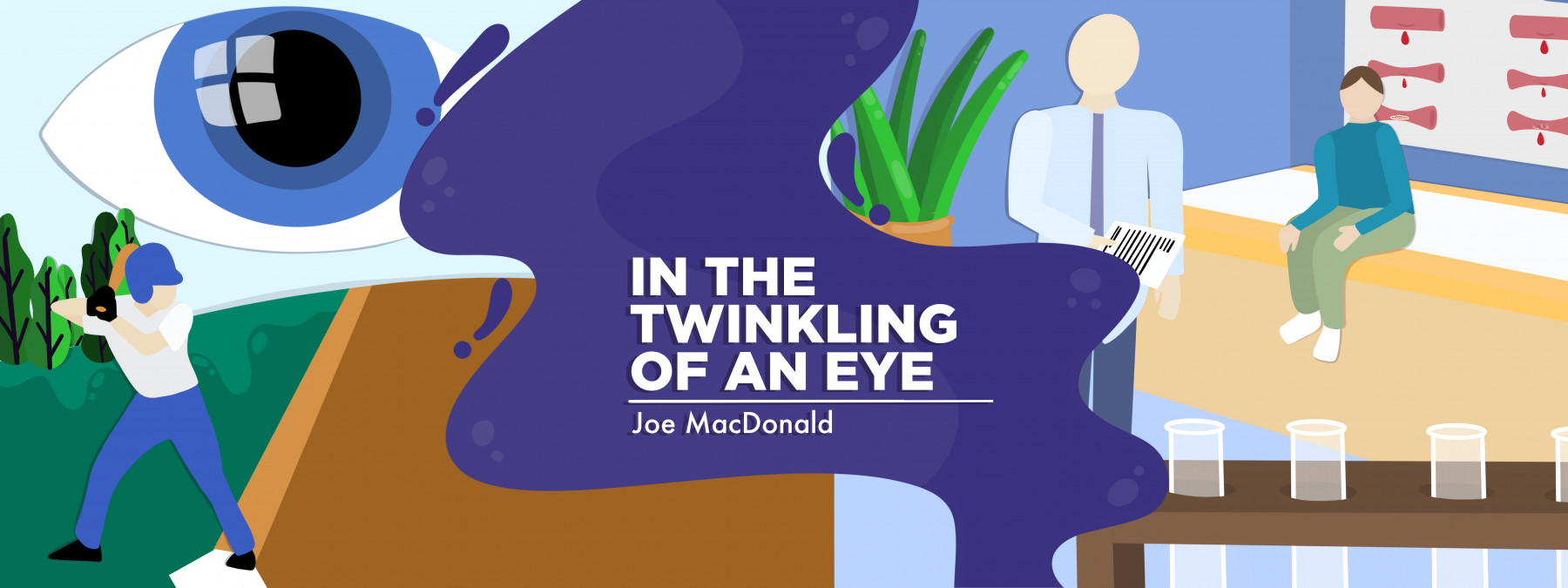Sharing our stories empowers others in our community
Writing and storytelling are powerful means of connection, advocacy
Written by |

My wife, Cazandra, and I enjoy speaking on topics critical to the bleeding disorders community, as both of our adult sons live with hemophilia. A few weeks ago, we had the chance to lead a seminar called “Telling Our Stories” at the National Bleeding Disorders Foundation’s (NBDF) annual conference. Our session, in which we shared storytelling techniques, was a great success, with many participants feeling inspired to share their stories and take action in our community.
As we went around the room, Cazandra and I asked people to share their reasons for attending the seminar. I was amazed to discover that people had many different motives. Some came to begin organizing the book they wanted to write, while others hoped to learn how to share their caregiving experience.
Many struggled to find the courage to put pen to paper and initiate the writing process. I acknowledged that when I first started writing my column, I worried about structure and how relatable my experiences would be. As I began chronicling our family’s adventures, both exciting and frightening, I suffered from impostor syndrome. I’d wonder, “What can I write that will matter to anyone in our community?” I could go on with other fears that held me down.
Just keep writing
As Cazandra and I continued the session, we discussed our different approaches to writing and how we support each other. She is a masterful storyteller, often adding personal touches that make the reader feel like they’re part of her tale. She gently invites people to journey with her and often transforms their thoughts and ideas.
I, on the other hand, struggle with narrative writing. I have a strong academic background, find comfort in reporting facts, and enjoy interpreting texts based on scholarly research. From the very first column I wrote, I struggled to branch out into personal reflection and describe how actions changed my thoughts.
As I shared my ideas with our group, I told them that the only way I could improve was to write each day. The text didn’t have to be publishable. “Writing does not have to be perfect to convey an important idea,” I explained. “What matters most is that the author feels a sense of liberation as they share their journey.”
Cazandra and I reminded the participants that even though their stories are unique, they serve as an important means of connection. “You never know what your words can do,” she said. “You may write about an event in your life that resonates with someone else. You may share the exact words someone needs to hear. So write from your heart and share about your experiences in the bleeding disorders world.”
As we continued our session, Cazandra and I talked about one of the most powerful ways we can share our stories: by participating in the NBDF’s Washington Days. The event is usually held in March, which is Bleeding Disorders Awareness Month. Many volunteers from around the country meet in Washington, D.C., to lobby our respective congresspeople regarding our community’s needs. During the event, we share our personal stories and advocate for better healthcare and support for those with bleeding disorders. I encouraged everyone to participate at least once.
As Cazandra and I wrapped up our session, we reminded the participants that their words carry power. Whether we’re writing a book, jotting down thoughts, or lobbying members of Congress, we should never give in to self-doubt. If we just keep writing, we can discover ways to liberate ourselves from a past that might hold us at bay.
As we finished, people applauded and responded positively to our presentation. We felt pleased and loved working together for our community — one bound by shared experiences and a common goal of advocacy.
Note: Hemophilia News Today is strictly a news and information website about the disease. It does not provide medical advice, diagnosis, or treatment. This content is not intended to be a substitute for professional medical advice, diagnosis, or treatment. Always seek the advice of your physician or another qualified health provider with any questions you may have regarding a medical condition. Never disregard professional medical advice or delay in seeking it because of something you have read on this website. The opinions expressed in this column are not those of Hemophilia News Today or its parent company, Bionews, and are intended to spark discussion about issues pertaining to hemophilia.




Leave a comment
Fill in the required fields to post. Your email address will not be published.